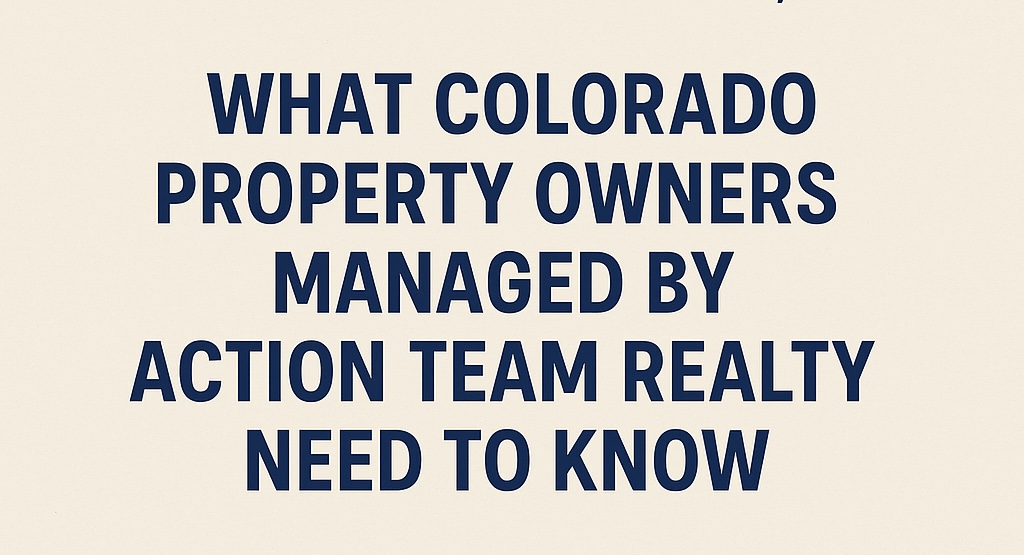New 2026 Tenant Law: What Renters and Landlords Need to Know About Security Deposits
Effective Date: January 1, 2026
A new Colorado law updates how landlords in Colorado must handle tenant security deposits. These changes aim to protect renters from unfair deductions and promote transparency in rental agreements.
🔍 Key Changes at a Glance
•Broader definition of “normal wear and tear”
•Required written documentation for any deductions
•Option for walk-through inspections
•Clear rules on bad-faith or wrongful withholding
•New limits on carpet and paint charges
•Timeframes for deposit transfers and refunds
1. What Counts as Normal Wear and Tear
The law expands what’s considered normal wear and tear, everyday aging, and use of the property.
➡️ Landlords can’t charge tenants for things like small scuffs, faded paint, or worn carpets from regular use.
2. When Landlords Can Keep Part of a Deposit
Landlords may only withhold part of a security deposit for actual damage that goes beyond normal wear and tear, and never for issues that existed before the tenant moved in.
If a landlord keeps any money, they must:
•Provide a written statement explaining the exact reasons.
•Share proof or documentation (like photos, receipts, or invoices) upon written tenant request.
•Return the remaining balance promptly.
3. Walk-Through Inspections
Tenants and landlords can request a walk-through inspection, in person or via video to identify damages before move-out.
Inspection requirements:
•Must happen before the lease ends or before move-out,
•Must be mutually convenient, and
•Should take place after furniture is removed.
This helps both parties agree on what damage exists and avoid disputes later.
4. Wrongful or Bad-Faith Withholding
A landlord is considered to have wrongfully withheld a deposit if they:
•Don’t provide a written explanation or documentation on time,
•Fail to return the remaining balance, or
•Keep money without actual cause or for discriminatory reasons.
If a landlord keeps 125% or more of actual damages, it’s presumed unreasonable.
➡️ In any court case, the landlord must prove the amount of actual damages.
5. Changing Property Ownership
If a landlord sells or transfers ownership, they must either:
•Transfer the deposit to the new landlord, or
•Return it to the tenant within 60 days.
If a refund check bounces or is returned, the landlord must hold it for one year and resend it within 15 days if requested by the tenant.
6. Carpet and Paint Rules
Landlords can’t charge for new carpet or painting unless:
•The damage is substantial and irreparable,
•It goes beyond normal wear and tear, and
•It did not exist before the tenant moved in.
Even then, landlords can only charge for the affected area, not the entire unit.
Also, carpet older than 10 years cannot be considered “substantially damaged.”
🏡 What This Means for Renters and Landlords
For renters, this law brings stronger protections and clearer communication when it comes to getting your deposit back.
For landlords, it provides guidelines to stay compliant and avoid legal issues.
✨ Key Takeaway
Starting January 1, 2026, security deposit rules will be stricter and more transparent. Tenants should document the condition of their rental before moving in and out, while landlords must keep detailed records to justify any deductions.
As always, having a Property Manager In Colorado Springs to help manage and maintain your property is what we strive to do. For those who want to dig deeper, you can review the full legislative text and details on the Colorado General Assembly site:


